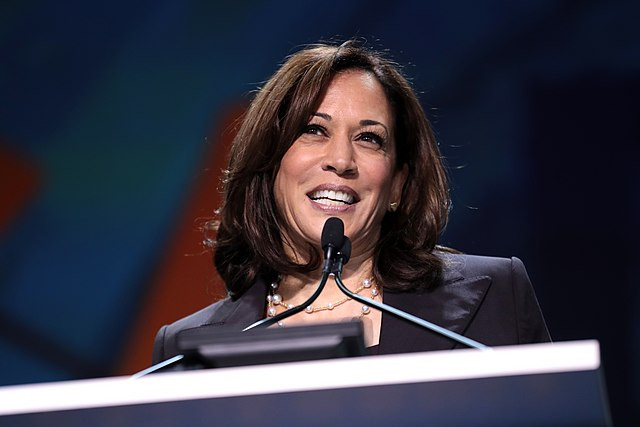Vice President Kamala Harris is sharpening her focus on high food prices, making it a central issue in her campaign as she prepares to unveil an economic policy speech in North Carolina. On Friday, Harris is expected to propose a federal ban on price gouging in the grocery sector, a move aimed at addressing one of the most pressing concerns for American voters-rising food costs.
Harris is particularly zeroing in on the surge in meat prices, which she argues are a significant contributor to the increased cost of groceries. While year-over-year inflation has recently reached its lowest point in over three years, food prices remain a staggering 21% higher than they were three years ago. The issue has become a flashpoint in the presidential race, with Republican nominee Donald Trump criticizing the Biden administration for failing to control inflation, especially in the energy sector.
In contrast, Harris is aligning herself more closely with President Joe Biden's economic and legislative achievements. During a recent joint appearance in Maryland, the two touted their success in lowering prescription drug prices through the Inflation Reduction Act, a 2022 law that Harris helped pass with her tiebreaking vote in the Senate. "The tiebreaking vote of Kamala," Biden remarked, "made that possible." He further praised Harris, predicting that she's "gonna make one helluva president."
Biden has also taken steps to combat rising food prices, such as establishing a "competition council" aimed at increasing competition within the meat industry. This initiative is part of a broader strategy to demonstrate that his administration is taking active measures to fight inflation.
Despite these efforts, Harris faces a tough battle convincing voters that she is the better candidate to handle economic issues. A recent Associated Press-NORC poll revealed that 45% of Americans trust Trump more than Harris to manage the economy, with only 38% favoring Harris. Nevertheless, Harris is determined to make her case, particularly focusing on what she describes as corporate greed within the food industry.
The vice president's proposals come amid evidence suggesting that what some economists have dubbed "sellers' inflation" is beginning to fade. Over the past 12 months, grocery prices have risen by just 1.1%, a rate more consistent with pre-pandemic levels. However, this slight cooling has done little to alleviate the financial pressure on many Americans, particularly those in lower-income brackets, who continue to feel the squeeze of high grocery bills.
Meat prices, in particular, have been a focal point of this inflationary pressure. Since the onset of the pandemic, beef prices have soared nearly 33%, while chicken prices have increased by 31%, and pork by 21%, according to government data. The Biden administration has partly blamed these price hikes on the consolidation of the meat processing industry, where a handful of large companies, including Tyson and JBS, control the majority of the market. These companies have faced lawsuits accusing them of price-fixing, though they have denied any wrongdoing.
Harris's focus on price gouging within the food industry has been met with skepticism from some quarters. Kansas State University agricultural economist Glynn Tonsor argued that higher meat prices are more likely due to increased production costs rather than corporate greed. "The cost of raising the animal, the cost of converting it into meat, and the cost of getting that meat to people is higher than it was," Tonsor explained.
Julie Anna Potts, President and CEO of the Meat Institute trade group, echoed this sentiment, suggesting that a federal ban on price gouging would not address the root causes of inflation. "Consumers have been impacted by high prices due to inflation on everything from services to rent to automobiles, not just at the grocery store," Potts said.
As Harris ramps up her campaign, she is also expected to push for heightened scrutiny of mergers within the food industry. Her proposal comes on the heels of a significant merger announcement: Mars, the company behind Snickers and Skittles, recently agreed to acquire salty snack maker Kellanova for $35.9 billion. This deal, along with the proposed $24.6 billion merger between supermarket giants Albertsons and Kroger, could face increased regulatory scrutiny under a Harris administration.






